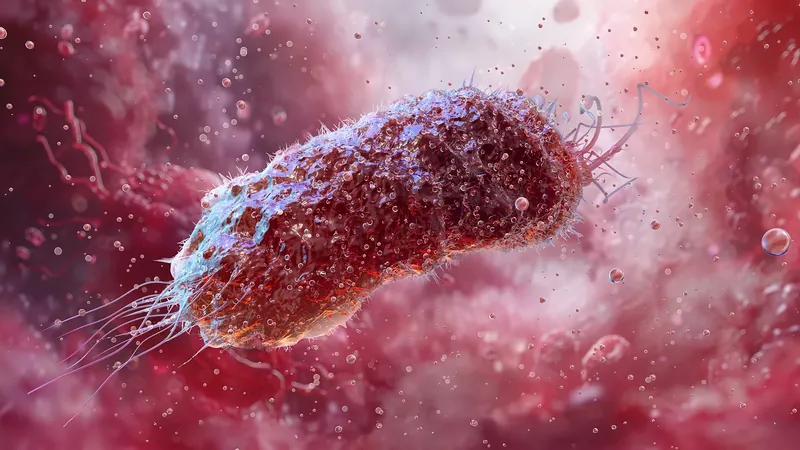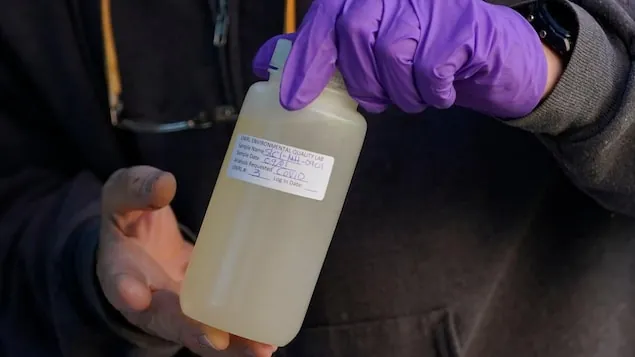
How a Common Antibiotic Fuels Bacterial Resistance: Surprising Findings from Rutgers Health
2025-06-09
Author: Liam
A Study That Shakes Conventional Wisdom
A groundbreaking study from Rutgers Health reveals that ciprofloxacin, a widely used antibiotic for treating urinary tract infections, inadvertently pushes Escherichia coli (E. coli) into an energy crisis, enabling many cells to survive and accelerating the development of antibiotic resistance.
What’s Behind This Bacterial Resilience?
Barry Li, a dual doctoral degree candidate at Rutgers New Jersey Medical School and lead author of the study published in Nature Communications, explains: "Antibiotics can actually alter bacterial metabolism. We sought to understand how these metabolic changes influence bacterial survival rates."
The Shocking Mechanics of ATP and E. coli
The researchers, including senior author Jason Yang, focused on adenosine triphosphate (ATP), the essential energy currency of cells. When ATP levels plummeted, E. coli experienced what's known as "bioenergetic stress." To investigate, the team engineered E. coli to deplete ATP rapidly, then tested these modified bacteria against ciprofloxacin.
An Unforeseen Outcome: Bacteria Fight Back!
Surprisingly, rather than slowing down, the bacteria upped their game. Increased respiration and the release of reactive-oxygen molecules ensued, leading to two alarming consequences: first, a staggering increase in the number of surviving cells. In time-kill tests, ten times as many stressed E. coli managed to withstand a lethal dose of ciprofloxacin compared to their unstressed counterparts. These resilient survivors, known as persister cells, linger until the threat fades, only to spring back and potentially reignite infections.
Changing the Narrative on Bacterial Survival
Traditionally, it was thought that slower metabolism curtailed bacterial survival. However, Li’s research suggests the opposite—stressed bacteria boost their metabolism to replenish energy, activating stress responses that defend against antibiotic action.
The Double-Edged Sword of Stressed Cells
Stressed E. coli also evolved antibiotic resistance quicker than their normal peers. The research revealed that as these cells underwent cycles of increasing ciprofloxacin doses, they reached the resistance threshold four times faster than unstressed bacteria. Insights from DNA sequencing pointed to oxidative damage and unreliable DNA repair as key factors.
The Broader Implications on Antibiotic Resistance
This study is critical, highlighting a growing global concern: antibiotic resistance, which currently leads to approximately 1.27 million deaths annually. The research suggests that ignoring the metabolic consequences of antibiotic treatment could hinder efforts to combat bacterial threats. Preliminary findings indicate that other antibiotics like gentamicin and ampicillin may also drain ATP, hinting at broader implications for various pathogens, including the notorious Mycobacterium tuberculosis.
A New Path Forward in Antibiotic Strategy
The revelations from this study suggest several necessary adaptations in antibiotic development and application. Researchers recommend screening potential antibiotics for unintended ATP-depleting side effects, combining existing treatments with agents that combat evolution by blocking stress responses, and reconsidering the instinct to deliver maximum doses, which might inadvertently bolster bacterial defenses.
A Mission to Turn Energy Crisis into Opportunity
Li and Yang plan to explore compounds that could alleviate bioenergetic stress, aiming to transform this microbial energy dilemma from a shield into a vulnerability. As Yang aptly puts it, "Bacteria can turn our attacks into a training camp. If we can cut the power to that camp, we can extend the efficacy of our antibiotics."









 Brasil (PT)
Brasil (PT)
 Canada (EN)
Canada (EN)
 Chile (ES)
Chile (ES)
 Česko (CS)
Česko (CS)
 대한민국 (KO)
대한민국 (KO)
 España (ES)
España (ES)
 France (FR)
France (FR)
 Hong Kong (EN)
Hong Kong (EN)
 Italia (IT)
Italia (IT)
 日本 (JA)
日本 (JA)
 Magyarország (HU)
Magyarország (HU)
 Norge (NO)
Norge (NO)
 Polska (PL)
Polska (PL)
 Schweiz (DE)
Schweiz (DE)
 Singapore (EN)
Singapore (EN)
 Sverige (SV)
Sverige (SV)
 Suomi (FI)
Suomi (FI)
 Türkiye (TR)
Türkiye (TR)
 الإمارات العربية المتحدة (AR)
الإمارات العربية المتحدة (AR)